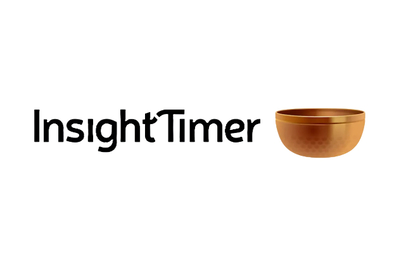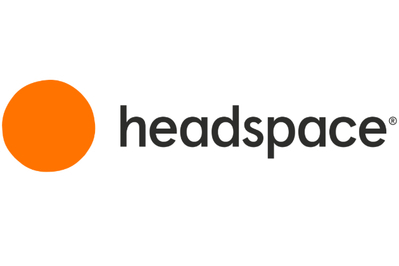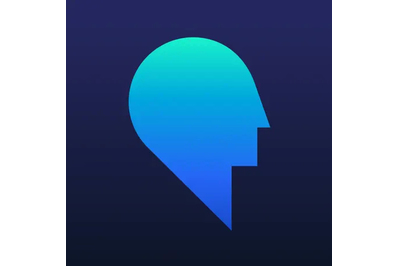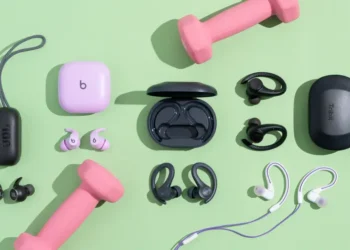Why you should trust us
Previous authors of this guide and I have consulted a variety of meditation experts and — across seven years of testing — evaluated 29 meditation apps in total.
I’m a longtime journalist who has covered various topics related to health and self-care. I’m also a mom of a medically complex kid. Over the years, I’ve sought a mixture of strategies, including mindfulness meditation, to manage stress and care for myself. These techniques have helped me as a Division I collegiate rower and in my recovery after a near-death car accident so I could compete in my first triathlon.
For this guide:
- I spoke with a pediatrician, a psychologist, a psychiatrist, a pain-management specialist, and three meditation experts.
- I personally tested 19 meditation apps, spending more than 100 hours on focused self-care.
- In addition to testing apps, I also evaluated non-app options for online meditation. This meant spending several hours scrolling #meditation on TikTok and scores of free meditation videos on YouTube, as well as listening to podcast episodes from the University of California Los Angeles’s Mindful education center, Plum Village’s The Way Out is In, The FitMind Podcast, and A Zen Mind Guided Meditations, a podcast found on Spotify, Apple Podcasts, and other platforms. The r/Meditation subreddit helped me to better understand the options for in-person meditation instruction in various locations.
- Like all Wirecutter journalists, I review and test products with complete editorial independence. I’m never made aware of any business implications of my editorial recommendations. Read more about our editorial standards.
How we picked and tested
In evaluating meditation apps we prioritized the following:
- Diversity of content: We looked for apps that include both guided and unguided meditations, taught by a variety of instructors and offered at different levels. An app should provide meditations of varying lengths and allow some degree of personalization, with the ability to save favorite tracks or create playlists.
- User-friendly design: The layout should be clear and easy to navigate.
- Reasonable trial period: Most paid apps offer a trial period, or at least a few sample meditations, before charging. The longer the trial period, or the more free options available, the better for you to decide if the app is right for you.
- Device compatibility: The app should be available for download on both iOS and Android, including on phones, tablets, and other devices.
- Extra features: Nice-to-haves include music tracks, yoga instruction, the ability to journal, and even (as with one of our picks) the ability to converse with a chat bot.
We set up accounts for each app and eliminated those that had frustrating interfaces. Then on the paid apps we noted how many courses we could access for free before running into subscription paywalls. Finally, we paid to unlock any paywalls so that we could compare the range of offerings across the apps. We tried each app’s beginners course, explored the workout sections, fell asleep to soundscapes, and joined live group-meditation sessions before making our final picks.
Top pick: Insight Timer

Insight Timer is the most comprehensive and user-friendly mindfulness meditation app we’ve considered. And it’s mostly free.
It has a massive free library. With more than 246,000 free tracks (representing roughly 90% of the total catalog), the app gives you plenty of guided and non-guided meditation options to choose from. Beyond individual meditation tracks, you can listen to music or take a multiday meditation course. Short, simple meditations, such as the popular crystal-bowl meditation or 4-6-8 breathwork prompts, are easy to access.
The roster of instructors is comprehensive. With more than 20,000 teachers, who altogether lead meditations in more than 50 languages, Insight Timer offers courses in a wide range of options and styles. Beginning meditators might start with the course “Learn How To Meditate In Seven Days.” Other apps have far fewer instructors to choose from.
You can sort the app’s content based on your preferences. You can filter by the type of course (guided or unguided, music, talk, yoga), the type of practice (mindfulness, visualization, movement), and the type of possible benefits (sleep, health, happiness, performance). You can also filter by origins, such as New Age, science, spirituality, religion, or secular.
Curated playlists help you quickly find relevant content. Insight Timer’s curated playlists offer mental well-being support via its Free Care Tools. Each collection is grouped based on a theme, such as sleep and insomnia, depression relief, or stress and anxiety management.
You can attend live events virtually (and invite friends, if you like). At almost any moment, at least a couple of live Insight Timer events are being offered somewhere in the world. Live events are donation-based.
The app has various meditation options for kids. Insight Timer’s library offers guided meditations, affirmations, music, and more for child listeners (recommended age ranges are noted in some of the track titles). A free, five-day “Learn to Meditate” course for kids helps families get started.
Optional prompts invite you to set daily intentions. “Today I will…” is an exercise to help break bigger goals into manageable, focused, positive actions. You can set your own intention or get idea prompts. I’ve used it to remind myself to prioritize self-care (something that’s easy to neglect as a mother) or set boundaries. There’s also an accountability component: You can set milestones and streaks and share your progress with others.
You can sort content according to the time you have to meditate. A customizable Made for You button allows you to set the amount of time you have for the session. Scroll and select 5, 10, 15, 20, 30, 30+ minutes to see suitable options, or select All to see everything.
Your personal data is not sold to third parties. A spokesperson for Insight Timer said that the company doesn’t sell data and that it shares information with third parties only in order to provide services. You can request deletion of your account and all personal data by emailing privacy@insight.co. At this writing, the Insight Timer privacy policy was last updated in December 2023.
Flaws but not dealbreakers
It offers plenty of free tracks, but most courses are behind the paywall. Beyond the two freely available courses (“Learn How To Meditate In Seven Days” and “Mindfulness Daily”), most courses are included only in a paid subscription, which costs $60 per year. A redesign of the app’s library tab features paid courses prominently.
The kids meditations aren’t grouped by age. The app doesn’t provide a great way to search by age for specific kid-focused content.
Best for meditation coupled with therapy: Headspace

If the combination of a robust content library and the ability to converse with an AI chat bot appeals to you, Headspace is the best choice. We’ve recommended it in this guide since 2018, and it has evolved several times since its 2012 launch. With its latest update, the company is positioning itself as a comprehensive platform for mental health care: As of June 2025, you can opt to connect with a licensed therapist for virtual appointments directly in the app. We haven’t tested this service.
Headspace subscriptions range in price, with discounts for students and an option for families (K-through-12 educators and support staff in the US, UK, Canada, and Australia can access Headspace for free). For an individual, subscriptions start at $70 annually (14-day free trial) or $13 monthly (seven-day free trial).
Its library is large and diverse. Although Headspace has fewer total tracks in comparison with our top pick, Insight Timer, this app has a lot to offer. Altogether it has more than 1,200 meditation tracks. In addition to guided and unguided meditations, Headspace also offers breathing exercises, videos, and podcast episodes covering themes such as sleep, stress, parenting, and anxiety. Guided meditations are available in six languages: English, French, German, Spanish, Portuguese, and Mandarin. Among the offerings are opportunities for deeper learning and engagement, such as the 18-session course “Finding Your Best Sleep” or the 10-session course “Managing Financial Stress,” which is coupled with actionable items to help you stay on track. Beginner content features techniques such as body scans and visualization exercises.
The app is easy to navigate. If you’re new to meditation, Headspace makes it relatively easy to get started. You can search four main tabs: meditate, sleep, move, and music. Guided programs and themed collections help you find a relevant topic, such as “Mindfulness at Work” or “Ease Stress in Uncertain Times.”
It has plenty of content for kids and families. Nested under the main meditation tab are collections and lessons aimed at kids, parents, and families, including “Becoming a Mindful Parent,” “Mindfulness with Kids,” “Building Healthier Family Relationships,” and “Support for Your Fertility Journey.”
The sleep-related offerings stand out. Choose from “sleepcasts,” binaural beats, and sleep stories for kids (featuring the characters of Sesame Street).
It has an optional, always-on interactive chat bot. In 2024, Headspace launched Ebb, an optional AI chat bot. In my experience, chatting with Ebb was like texting with an impartial friend. As you chat, Ebb affirms your feelings and follows up with questions. Once you feel like you’ve chatted enough, you can ask Ebb to suggest an activity, and it then directs you to content on the app that might offer some guidance pertaining to the feelings or situations you’ve described.
I found this feature useful. For example, I was frustrated with a challenging situation at my son’s school. Following a brief text conversation, Ebb directed me to an in-app podcast episode, “Turning Weaknesses Into Strengths.” Another time I was feeling overwhelmed as a working parent, and the chat bot directed me to a reset meditation.
The app was designed with accessibility in mind. You can turn on closed captions and haptic assistance to receive a soft vibration when it’s time to look at your device. These are features that other apps, including Insight Timer, don’t offer.
Headspace also offers access to mental health coaching and therapy. The Care button at the bottom of the app provides direct, one-on-one access to a licensed therapist who can see clients or patients virtually via video chat. We haven’t tested this service. Check for insurance participation (you may also use HSA and FSA funds when paying out of pocket).
You may want to lock down how your data is used. Tap the settings gear icon at the top-left corner and go to the My Data section. At the Permissions tab (at the top), you can opt out of the sharing or sale of personal information, plus email offers from Headspace’s partners. Headspace last updated its privacy policy in March 2025.
Flaws but not dealbreakers
The interface is busy, and it is easy to get lost. Overall, navigating Headspace can at times feel like going from room to room at a house party where you haven’t yet met the host. For some people, it’s a lot. The app’s signature Headspace Face moves about while you navigate the content, which may be distracting.
You have to cancel your subscription to opt out of auto renewal. Some customers have reported difficulties opting out of an automatically renewed subscription. There’s an easy but somewhat counterintuitive way to avoid this situation: Once you’ve signed up and paid, cancel your subscription. This will stop the auto renewal a month or a year later.
Best for a master class in meditation: Waking Up

If you have moved beyond beginner coursework, or if you want to learn more of the “why” behind your own consciousness, including through mindfulness meditation, you’re likely to appreciate Waking Up. A new pick in this guide, and the most expensive option by far, Waking Up appeals to people whose primary focus is developing a fundamental understanding of themselves (as well as to fans of its creator and primary host, the neuroscientist/philosopher/author Sam Harris). It typically costs $130 a year, including a 14-day free trial, or $20 a month with a seven-day free trial.
Compared with our other picks, its library is somewhat pared down. But that’s kind of the point. Intensive, deeper exploration of specific topics sets Waking Up apart from most meditation apps. It’s a more curated, targeted library that offers longer sessions and extensive courses. Altogether, though it has fewer total tracks than our top pick, Insight Timer, it still provides a lot, giving you more than 2,000 tracks representing over 650 hours of content.
This app explains meditation and the mind, uncovering the “why” behind the practice. Waking Up gives more explanation about how the mind operates, with the goal of helping you to train your mind and open it up. The in-depth, 28-part introductory course helps beginners get started. The first seven sessions walk you through meditation basics and then describe how to become more present, understand your mind, and deconstruct the self. “Mindfulness isn’t a technique of meditation but a quality of the mind itself. The ability to have undistracted attention,” Harris states in the app. “Changing how you respond to the world is often as good as changing the world.”
The courses are comprehensive. Beyond the introductory course, the app has a variety of series that tackle difficult topics. For example, it includes a 10-session series on resolving conflict.
You can listen to in-depth conversations. The psychology of one’s mind is explored through two-hour podcast-episode-like conversations with host Sam Harris and a guest. Harris is a neuroscientist, a philosopher, and the author of best-selling books including Waking Up: A Guide to Spirituality Without Religion. He also hosts the podcast Making Sense with Sam Harris. If Harris’s style resonates with you, the app’s offerings will really resonate. If it doesn’t, the app probably won’t.
Your private data remains relatively private. Waking Up’s privacy policy, last updated in December 2023, states that the company doesn’t sell personal information. Still, Waking Up says it discloses information to third parties that provide services to the app.
Flaws but not dealbreakers
It’s expensive. An annual subscription is $130; a monthly subscription is $20. (Waking Up also offers partial — $60 a year — and full scholarships.)
The sessions are available in English only, and some run long. Like listening to a university lecture, experiencing some Waking Up recordings, which last an hour or longer, requires a time commitment. This may be a barrier to entry for some people; the lengthy guided meditations and extended philosophical, intellectual conversations in this app’s content library won’t appeal to everyone.
It has little content for kids. Waking Up doesn’t allow people under the age of 16 to create an account. Overall, the app is geared toward adults, though it does have a few offerings for younger audiences, such as the “Meditation For Children” series.
What to know about mindfulness meditation apps
Quieting one’s mind and becoming more present often requires years of practice. It’s about retraining your brain to stop chasing thoughts and to detach. Such mental training depends on your ability to practice. It feels a lot like being an athlete who is trying to get into the zone: It’s nearly impossible until it clicks. And then everything flows.
Mental training “is no different than physical training,” said Fadel Zeidan, PhD, the director of the Pain Health and Mindfulness Laboratory at University of California San Diego. “You’ve got to jog a few times before you run a marathon.”
There are plenty of ways to meditate, and meditation means many things to different people.
First, consider whether meditating with an app makes sense for your situation. As with physical exercise, training your mind is sometimes most easily achieved in the company of others working toward similar goals. Perhaps your training is more advanced, eclipsing the sort of instruction that most meditation apps provide. (Most experts we’ve interviewed for this guide say they don’t use meditation apps; at their experience level, they prefer to meditate on their own.)
Of course, attending in-person meditation classes or mindfulness retreats isn’t always feasible. A quality meditation app makes mindfulness more accessible to beginners. And it allows you to practice meditating on your own schedule, at your own pace, and with a variety of instructors.
No matter how you practice — in person, online, or some combination — meditating has been shown to reduce stress, improve your focus, strengthen your memory, and enhance your attention, self-awareness, and emotional regulation, and it can even have real-time physical effects, such as reducing blood pressure.
In the past year, meditation apps have undergone a big shift. Many are moving away from a one-size-fits-all approach and working toward becoming more personalized with the help of AI, targeting and tailoring training plans to suit your moods, needs, time, and overall goals. App makers are also responding to what they say is a growing demand for non-audio wellness tools, such as the ability to journal or to fulfill streaks.
It’s important to find the program that’s right for you. A downloaded app that goes unused is a lot like a purchased treadmill or Peloton bike that sits lifelessly in the corner. It works only if you use it.
Consistent practice, experts told us, matters more than duration. Meditating and checking in with your body may require only a few minutes, said Michelle Loy, MD, who specializes in integrative medicine at New York–Presbyterian Weill Cornell Medicine. Use that time to get grounded. “A good meditative state means you’re engaged in the present. You’re in the moment, not in the past and not in the future,” she said. “You’re curious. You’re observing your thoughts as they come and go like clouds, but there’s no judgment.”
Plus, you can meditate anywhere. “The more you do it, the better it gets,” Loy said.
Still, Loy cautions, meditation apps aren’t for everyone. “There are certain patients who, when they get more data, they get more anxious,” Loy said. For those patients, she suggests seeking in-person instruction led by a licensed therapist.
According to Amishi Jha, PhD, the director of contemplative neuroscience for the Mindfulness Research and Practice Initiative at the University of Miami, one of the biggest downsides of using an app is not knowing what to do with it. “You enter a world of options, and many people feel lost,” she said. The best apps outline a clear path for what you want from your practice.
Other meditation apps worth considering
Free or donation-based apps
If you want to think like an athlete when it comes to meditation: FitMind (iOS, Android) may be the app for you. This progressive app takes you through a mental-training boot-camp regimen with Liam McClintock, a Yale graduate turned Buddhist monk, to train your attention and keep any reactivity in check by “looking at the space between your thoughts.” It’s about teaching yourself how to pause. It’s a good free app that blends ancient wisdom and modern science, explaining the neuropsychology surrounding ancient methods. Start with a three-part, 30-day training program via its foundations course. Each day pairs a quick lesson and a training session in approximately 10 minutes or less.
If you want to have podcast-like lessons without paying for a subscription: Healthy Minds Program (iOS, Android) offers a lot for free, with a straightforward approach that helps beginners. Its extensive learning course directs you through the basics of meditating. Its structured, scientific approach delves into how your brain works based on research done by Healthy Minds Innovations, a nonprofit affiliated with University of Wisconsin–Madison’s Center for Healthy Minds. You can listen to the Dalai Lama’s guide to happiness, or to meditations based on interest, including relationships or compassion in action. Busy people will appreciate the micro meditations, which last for a minute or two. Like Insight Timer and other apps, Healthy Minds Program also has an unguided-practice timer, where you set the duration starting at the five-minute mark.
If you are interested in Buddhist traditions: Plum Village (iOS, Android) is a donation-based app focused on the teachings of the late Vietnamese Zen master Thích Nhất Hạnh, “the father of mindfulness.” Grounded in Buddhism, Plum Village’s approach nurtures inclusiveness and offers a variety of meditations, Dharma talks, and teachings and lessons by monks, nuns, and lay practitioners. You can set Plum Village’s mindfulness bells as notification reminders to meditate. Like other apps, it also has guided meditations for children that range from a minute or two to a nearly 18-minute “Deep Relaxation for Children” track. Listening to tracks on this app brought me back to my time in Southeast Asia. Note that some of the teachings have subtitles: Plum Village content is available in English, French, Italian, German, Portuguese, Spanish, and Vietnamese, and some videos have subtitles in Chinese (simplified and traditional), Indonesian, Japanese, Korean, and Dutch.
If you want a child-centric meditation app: Smiling Mind (iOS, Android) is a free, family-friendly app that offers more than 700 meditations, lessons, and practices, such as how to relax in the car together by practicing mindfulness with your child. You can explore content based on five mental-fitness skillsets: live mindfully, grow connections, flexible thinking, act purposefully, and recharge your body. Resources are divided into helpful sections for parents, school programs, and workplace well-being. You can filter content by age, for kids, teens, or adults. What’s unique is the ability to create family routines, with daily reminders. The content is also offered in several other languages besides English, including Arabic. My 7-year-old didn’t particularly enjoy this app, but many parents swear by it.
Paid apps
If you want a meditation app with a soothing, minimalist interface and a longer-than-most trial period: Balance (iOS, Android; $70 per year, first year free for new users) is especially clear and easy to use, in large part because it personalizes meditations as it learns from you. Beginners can start with Balance’s 10-day Foundations Plan, which provides a daily lesson coupled with a meditation. Additional offerings include 10-day courses on particular topics, such as improving communication or increasing productivity. The app also has plenty of sleep content, covering relatable topics such as “Sunday Scaries” to ease into the work week. Other tools include a task timer, a journal, and an unguided-meditation option. One drawback is that the guided meditations are voiced by only two people. We appreciate that meditations can be personalized to a time frame of five, 10, or 15 minutes. What surprised me the most was the app’s request that I repeatedly tap screens to get additional information or access a track. It makes the app feel interactive, but some people could find it annoying. Even though the first year is free for new users, you must give your credit card information to sign up for an account; once you enroll, make sure to cancel the subscription so that it doesn’t automatically charge your card a year later.
If your primary focus is falling and staying asleep with guided meditations and music: Calm (iOS, Android; $70 per year) is perhaps best known for its sleep stories, which feature diverse voices, including a host of celebrities. It also has a variety of meditations, including a daily practice section, unguided timed sessions, soundscape options, and plenty of content for kids. Calm’s “taptivities” promote mindfulness with guided prompts that appear as you tap your phone to advance to the next question. Another prompt is “Got Two Minutes?” a micro meditation that encourages you to pause for no reason; you can practice these silently and discreetly, even in a public place. Like our picks and like Balance, Calm offers a place to journal. It also has non-audio tools for mood, sleep, and gratitude check-ins. One of the best parts of this app is Daily Calm, a 10-minute guided meditation. It’s like a friend who is waiting to greet you each day.
The competition
Free or donation-based apps
Blackfullness (iOS, Android) doesn’t have enough content to compete with our picks, but its offerings, including daily affirmations, are meant to fill gaps in inclusion and belonging. “We’re creating a space that helps people have more access to mindfulness, where they can see themselves in the experience, where it doesn’t feel like it’s so far off,” said David Walker Jr., who co-founded the app after a camping trip in 2020.
Medito (iOS, Android) is run by a nonprofit foundation focused on building a more mindful world. A customizable timer helps you meditate for as long as you choose, from a minute to an hour. To access insightful sessions, though, you have to go back and forth within the app to play the next track.
Paid apps
Aura (iOS, Android; $70 per year) has a massive library with more than 10,000 meditations, life-coaching articles, stories, and music tracks, including live sessions, celebrity instruction, and themed series such as the three-day course “Beginners Breath Meditation” or the seven-day “Wonderful Morning Affirmations.” It provides a great diversity of instructors, a massive sleep section, and, for an additional fee, one-on-one coaching. However, the app doesn’t always load properly, and in our experience it closed at times without warning. Saving tracks to create playlists can be cumbersome.
If you already know how to meditate and want to get into a deeper zone or flow state, Brain.fm (iOS, Android; $70 per year) is a favorite, particularly among neurodivergent people. The app is known for its AI-generated music based on rapid modulation of brain wave frequencies. With limited options for guidance, it is not the best choice for people who want to learn how to meditate. You can pair audio content to your mental state, for focusing, relaxing, meditating, or sleeping.
Happier (iOS, Android; $100 per year), formerly Ten Percent Happier, is an easy-to-navigate app with a clean interface. Its targeted and tailored approach, with topics such as chronic pain and illness, neurodivergence, and celebrate Pride, set the app apart. Two flagship courses, “Getting Started” and “The Dalai Lama’s Guide,” the latter of which includes videos with the Buddhist master, stand out. Like many other apps, Happier also has an unguided timer (which lasts from one minute to 90 minutes). This app has a variety of voices, plus unguided meditations. Its shorts feature offers quick, insightful three-minute videos and actionable-practice tips, such as meditating while using the timer on an electric toothbrush. Still, our picks have much larger libraries and therefore provide better value overall.
The colorful home screen of Mindwell (at the time of publication, iOS only; $60 per year) is meant to help assess your mood, slotting it into one of four quadrants — frustrated (red), energized (yellow), discouraged (purple), or relaxed (blue) — or somewhere in between. It provides a lot of options, including meditations grouped together by themed topics and encompassing everything from sports and fitness to “destructive behavior” to living with cancer. In our experience, however, the library seemed disjointed and scattered.
Simple Habit (iOS, Android; $90 per year) is marketed for busy people. The app offers a lot for beginners and for those seeking stress management. Through its On-the-Go option, you can select a five-, 10- or 20-minute meditation based on your mood. Although Simple Habit provides a wide selection of meditations with a paid subscription, it has a limited amount of free content; some people complain that if they try the paid version and then decide to switch back to free, their app freezes. At this price, which is more than what most competitors, including Insight Timer and Headspace, charge, a meditation app needs to be really good to be worth the money.
Breethe (iOS, Android; $89 per year) presents a personalized approach in English or Spanish with more than 1,700 tracks. Unlike most meditation apps we tested and reviewed for this guide, Breethe also provides access to alternative therapies, such as hypnotherapy, tapping, and music therapy. Six AI coaches offer to help with sleep, relationships, and parenting, among other topics. Unlike with Headspace, where you can opt out of the AI chat, if you don’t use the coach feature in Breethe, there isn’t a good way to get a suggestion quickly. It took six of my responses (13 total messages between us) before Breethe’s AI parenting coach finally asked, “Would you like some advice on how to approach this?” (Headspace’s Ebb chat bot was more helpful, more quickly.)
To access content on Meditopia (iOS, Android; from $80 per year), you need to take an extensive quiz that feels quite invasive — and quite aggravating by the time you’ve completed it. It’s enough of a barrier to entry that we think most people are likely to quit before they get through it. For example, when it asks about your experience with meditation, it doesn’t even give you an option to say you’re advanced; the choices are simply “I’m not interested,” “I have little to no experience,” or “I meditate every now and then.” It also asks questions about age and gender that seem invasive. And the pricing structure is complicated, with 10 different options listed on iTunes.
Sattva (iOS, Android; $50 per year) includes guided meditations, mantras, chants, and sacred sounds in a Vedic-meditation-based app that prominently features global humanitarian and Indian spiritual teacher Gurudev Sri Sri Ravi Shankar. A quick-start timer makes it easy to meditate as soon as you fire up the app. The ability to add shortcuts helps you find tracks you’ve saved. Many of the mediations are at least eight minutes long.
Caira Blackwell contributed reporting. This article was edited by Tracy Vence and Kalee Thompson.
Sources
-
Dan Clark, CEO, Brain.fm, phone interview, February 12, 2025
-
Amishi P. Jha, PhD, professor of psychology, director of contemplative neuroscience at UMindfulness, University of Miami, phone interview, May 2, 2025
-
Michelle H. Loy, MD, assistant professor of clinical pediatrics, Weill Cornell Medicine, phone interview, February 15, 2025
-
Theresa Roach, special projects manager, Crim Fitness Foundation, phone interview, February 24, 2025
-
Matthew Sacchet, PhD, associate professor of psychiatry, Harvard Medical School, director of the Meditation Research Program at Massachusetts General Hospital, phone interview, February 19, 2025
-
David Walker Jr., co-founder, Blackfullness, phone interview, February 20, 2025
-
Fadel Zeidan, PhD, professor of anesthesiology, director of the Pain Health and Mindfulness Laboratory, University of California San Diego, video interview, February 18, 2025





















